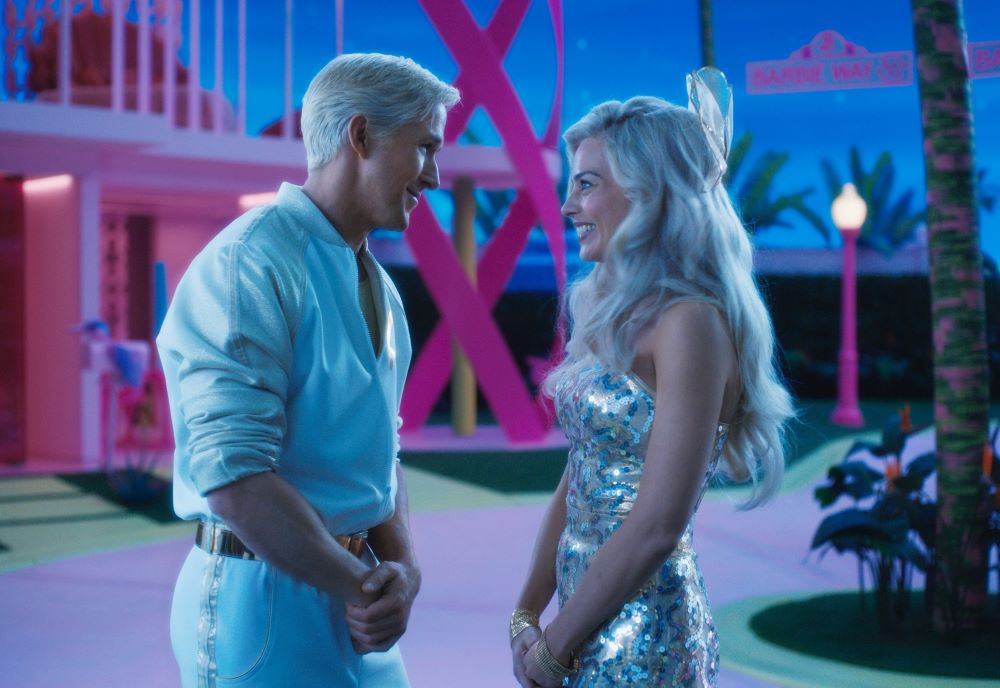
« Do you guys ever think about dying? »
These are just about the last words I would have expected to hear in « Barbie, » the new movie about my favorite childhood toy. And yet director Greta Gerwig wrote a script that is not only funny, but also touches on important, universal themes. Her storytelling skills connect women through shared experiences, societal expectations and hard topics — like death. Barbie is an idea, the film tells us, and ideas never end — unlike humans, who all reach an end in death.
The movie starts in Barbie Land, a picturesque toy city by the beach, where almost all women are named Barbie. Their houses, outfits, bodies and careers are all extraordinary. Perfect. But before long, Margot Robbie’s character, our protagonist Barbie, starts to experience « errors. » While everyone is dancing at a party, she spontaneously asks « Do you guys ever think about dying? » No one at the party knows how to respond. In fact, they don’t even think she’s serious. Why would they? Barbie Land is a happy place full of happy things; death is not part of the equation.
Robbie’s character learns that the girl who is playing with her in the real world is sad, and her sadness is bleeding into Barbie, causing her imperfections and making her question the world she knows. To fix the glitch, Barbie must go to the real world, find the girl and help make her happy again.
Once Barbie gets to the real world, she, understandably, isn’t sure where to start, so she sits on a bench near an older woman to think. They look at each other, smile, and Barbie — who has never before witnessed aging — finds she is in awe of the beauty of the older woman’s face. For the first time, Barbie catches a glimpse of what a long life looks like. She sees it reflected in wrinkles and white hair; she sees the beauty, and the reality, of death.
In Catholicism we might say Barbie experienced a memento mori moment on that bench, a Latin phrase that means « remember you must die. » Most of us recoil at the phrase. How could being reminded of the inevitably of your own death ever be a good thing?
But memento mori is not morbid for morbidity’s sake. Remembering our death is meant to remind us to live. When we keep in mind that someday our lives will come to an end, we can find gratitude for the present, even in suffering; we can decide how we want to live.
Barbie lived her « before » life superficially, from one moment of happiness to the next. The glitch she experienced brought with it new and difficult emotions. Living out memento mori meant learning to exist within the both/and space. Not only did she discover newfound gratitude and self-awareness, but she also learned how to hold space for the heavier things, like grief.
The woman on the bench with Barbie made me think of my grandma, who battled cancer for a few years before she died. As anyone who has been there can tell you, terminal illness has a way of forcing memento mori. When my grandma was first diagnosed, we asked her what she wanted to do with the rest of her time, thinking she would want to take trips or cross things off her bucket list. She shocked us all by saying that she just wanted to keep living every day as normal. She was happy with the life she built, spending time with family and working at a job she loved. She found she could be more grateful for each day, knowing her death was imminent. She was living an active memento mori, and it was an example to us all.
Remembering our death brings depth to our lives. We lose some of our illusions, but the paradox of being human is that joy is sweeter when we also know suffering and grief. In the movie, Barbie wrestles with the duality of happiness and heartbreak. She learns to grieve the perfection — we might say the innocence — that she has lost, and is challenged to find fortitude within herself. Ultimately, Barbie learns that she can simultaneously hold opposing emotions, that this is what it is to be human.
At the end of the film, Barbie comes face-to-face with Ruth Handler, her creator, and is given the choice between immortality or mortality: Remain a doll or become human. She is asked to consider death when deciding how she wants to live, just as we all must do.



